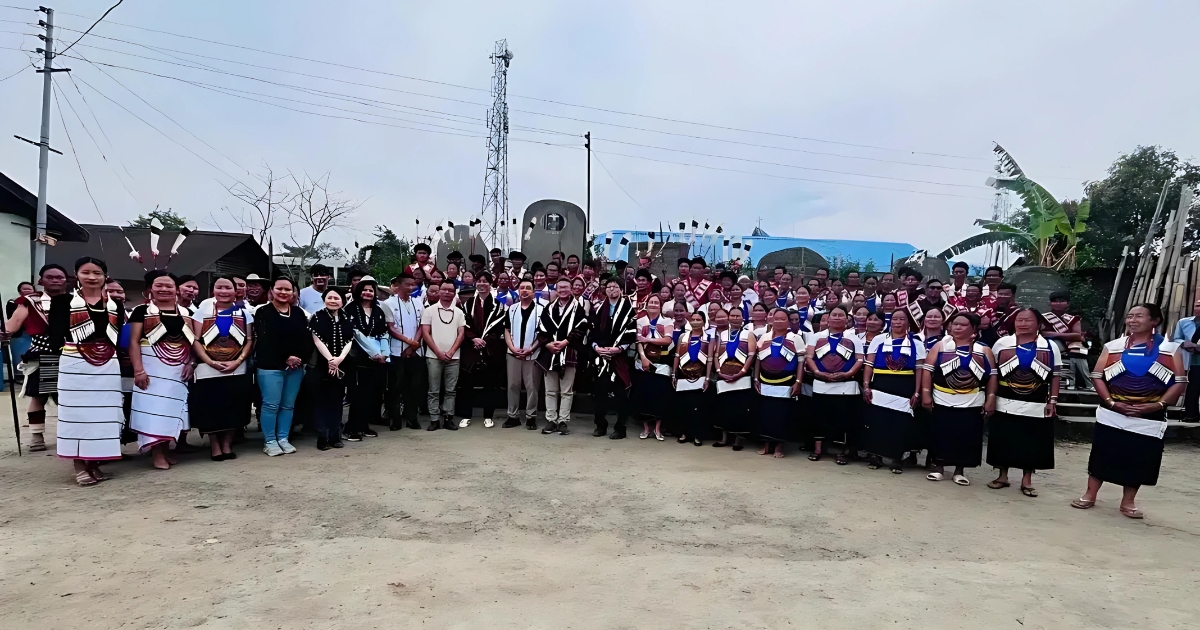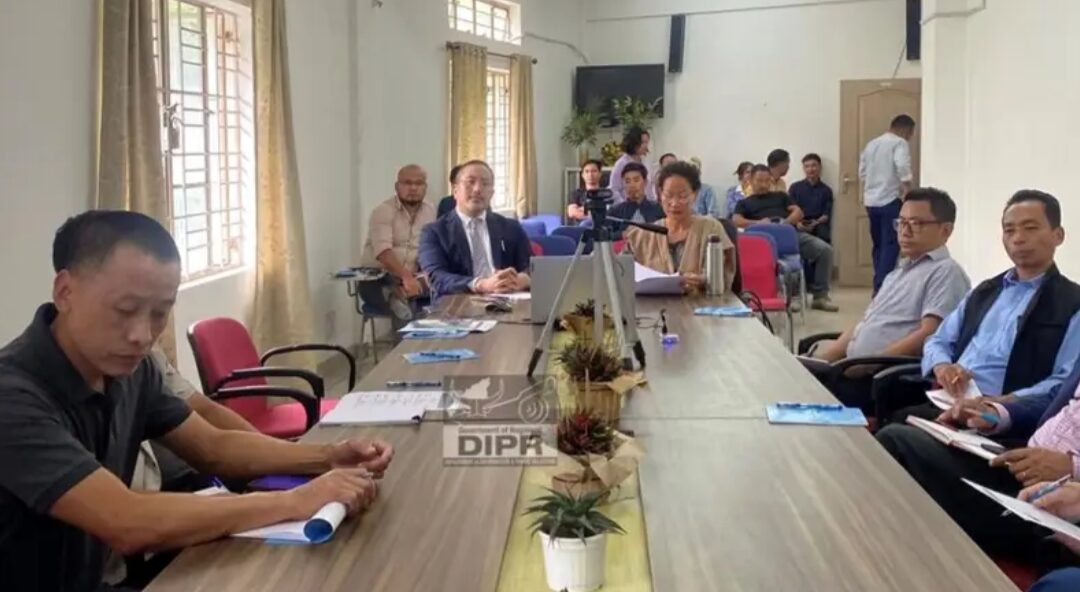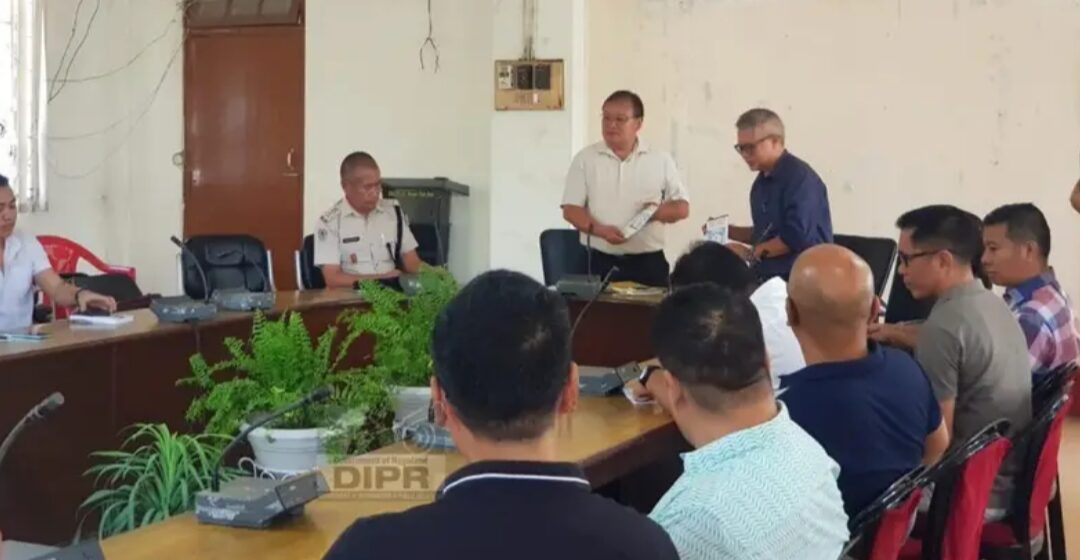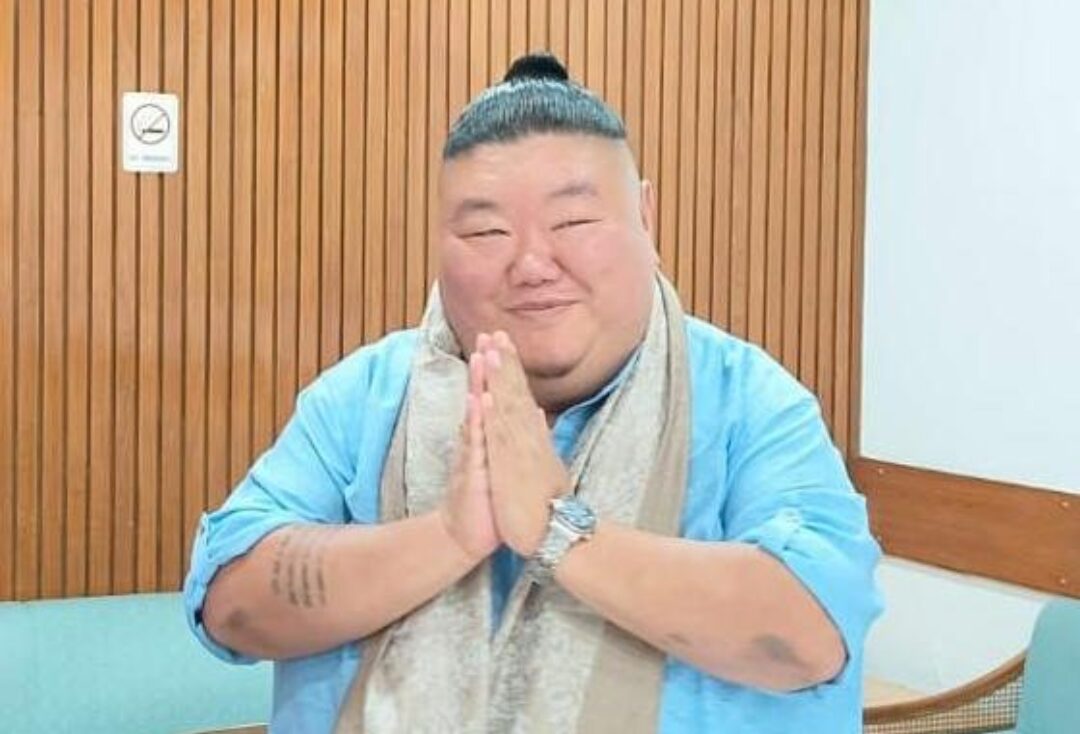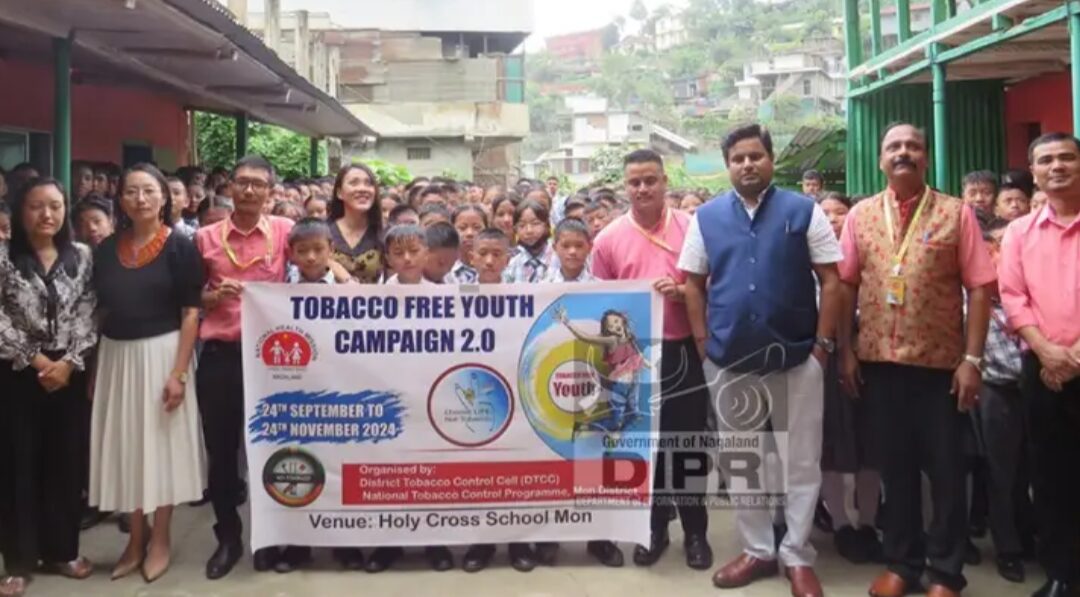On Monday, April 10, 2024, a delegation of Japanese officials embarked on a field trip to two villages in Nagaland, India, to evaluate the progress of the Nagaland Forest Management Project (NFMP).
The visit, which included stops in Tseminyu and Terogvunyu villages, aimed to strengthen the relationship between Japan and India while promoting sustainable forest management practices.
The Japanese delegation, consisting of representatives from the Ministry of Foreign Affairs and the Japan International Cooperation Agency (JICA), began their tour in Tseminyu village, where the NFMP is currently being implemented.
Also Read: 10 Cities Around The World with Zunheboto-Like Climate
Members of the joint forest management committee (JFMC) welcomed the officials and provided a comprehensive briefing on the community’s agricultural practices. The JFMC members also presented records and registers maintained as part of the project’s implementation.
Tokita Yuji, director of country assistance planning division II, International Cooperation Bureau, Ministry of Foreign Affairs, commended the village community for their cooperation in the project’s execution. He expressed optimism for the project’s sustainable future and emphasized the significance of fostering strong ties between Japan and India, particularly between Japan and Nagaland, and Japan and Tseminyu Village.
Also Read: 17 Villages in Zunheboto File PIL Against State Government Over Controversial Road Alignment
Wakamatsu Eiji, senior representative of the JICA India office, conveyed his satisfaction with the village’s positive reception of the project. He expressed hope that the NFMP would contribute to the long-term prosperity of Tseminyu Village.
Temjenyabang, CCF & project director (administration, finance, and procurement) of NFMP, praised the progress made in the village, attributing it to the community’s unwavering support. He encouraged continued cooperation between the village, the department, and the project to ensure its ongoing success.
Also Read: Jacob Zhimomi Highlights Central Government’s Commitment, Urges ENPO to Vote in Lok Sabha Elections
The Japanese delegation also visited Terogvunyu village, where they witnessed the village gate constructed as an entry point activity under the NFMP. The officials interacted with members of three self-help groups chosen to undertake income generation activities as part of the project.
The visiting team, which also included Hosaka Shun, second secretary of the economic wing at the Embassy of Japan in India, and Uda Chikako, senior development policy planning officer of country assistance planning division II, International Cooperation Bureau, Ministry of Foreign Affairs, was accompanied by several local forest department officials.
These officials included Supongnukshi Ao, CCF (Environment, Biodiversity & Research), Chisayi, DFO & DMU Head Kohima, Dr. Sevono Seletsu DCF & ADMU Head Kohima, and Yhuntilo Kent, FMU Head, Tseminyu Range.
Also Read: Bundesliga U-13 Trials to Feature 12 Players from Nagaland
The visits to Tseminyu (Batch – III) and Terogvunyu (Batch-II) villages, both selected for project implementation under the NFMP, showcase the ongoing collaboration between Japan and Nagaland in promoting sustainable forest management and community development.
The Japanese officials’ assessment of the project’s progress in these villages is crucial for ensuring its continued success and identifying areas for improvement.
As the NFMP continues to be implemented in various villages across Nagaland, the partnership between Japan and India in this endeavor remains strong. The project not only aims to preserve the region’s rich forest resources but also seeks to empower local communities by providing them with the tools and knowledge necessary to adopt sustainable practices and generate income through alternative means.
Also Read: Small Village, Big Dreams: Tsuchoi Breaks Barriers, Becomes Champion
The visit by the Japanese delegation to Tseminyu and Terogvunyu villages is a clear indication of the international community’s commitment to supporting sustainable development initiatives in India.
As the project progresses, it is expected to serve as a model for similar endeavors in other parts of the country, promoting a greener and more prosperous future for all.
